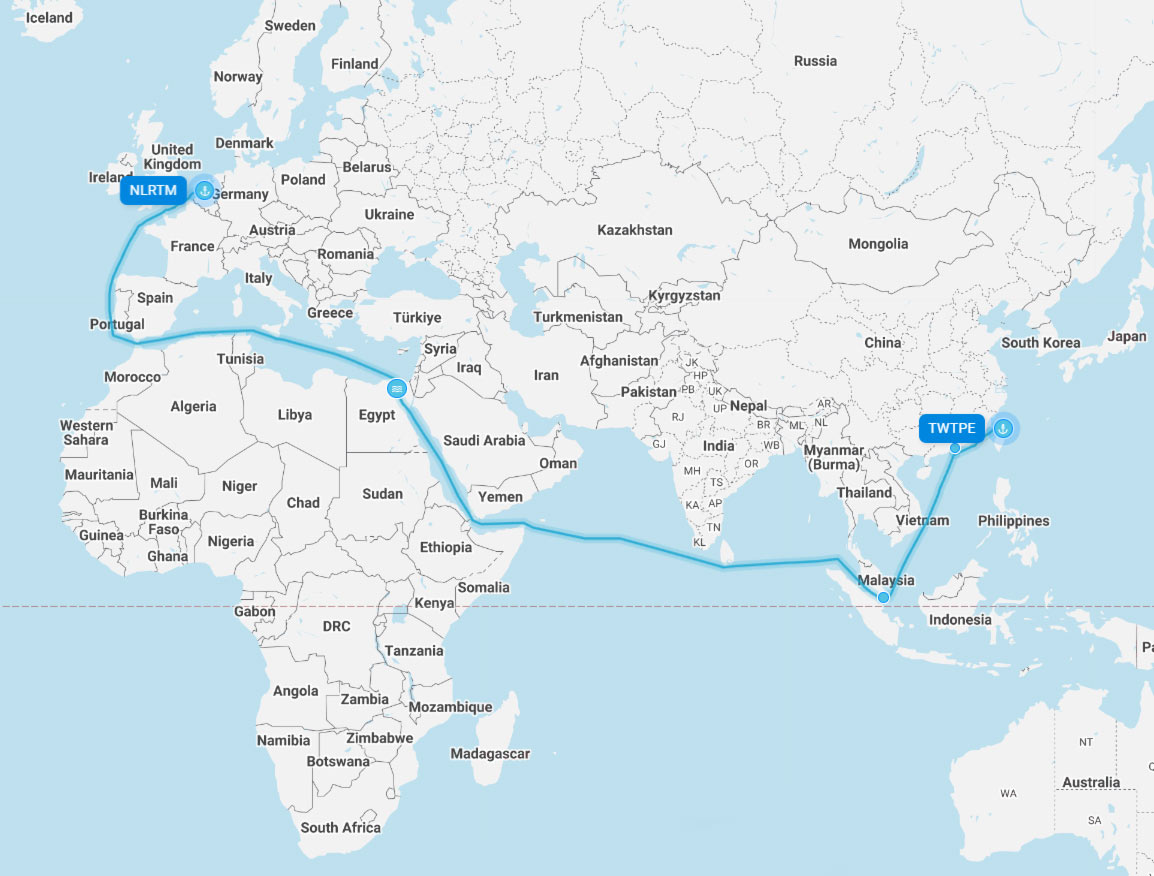Logitech warns profits will be hit by Red Sea crisis – it is among the first tech firms to confirm impacts
Products shipped from Asia to Europe will be worst affected.

Peripherals giant Logitech has confirmed that the Red Sea crisis is significantly impacting its business. Attacks on Red Sea shipping have spurred Logitech to decide on a longer, safer, slower, and more costly shipping route, especially for products destined for the European market. According to Reuters, the computer keyboards, mice, speakers, and webcams brand will see an impact of 100 basis points on its profit margin due to the raised costs. Thus, Logitech became one of the first tech companies to announce that the Red Sea crisis is affecting its business.
To ensure shipments from the Far East to Europe pass safely, Logitech’s gear now needs about 30 more days to reach its destination. Avoiding the Red Sea / Suez Canal route impacts shippers in several ways. Logitech CEO Hanneke Faber told Reuters in an interview on Tuesday that the new route “is taking us about 30 days longer.” Faber sees this rerouting, presumably around the horn of Africa, as impactful on company profits.
Of course, shipping companies will need to expend more time, fuel, personnel salaries, etc to re-route – but Logitech also notes the extra time means inventory impacts will be harder to avoid. According to the CEO, Logitech seems willing to use more air freight to solve bottleneck issues but won’t make a big shift towards air.
As mentioned above, the Red Sea crisis will mainly affect Asia / Europe trade. The Logitech CEO points out that therefore this slower and more expensive shipping method will primarily affect a region that accounts for about 30% of the firm’s business. A glass-half-full person might say that 70% of business remains unaffected… The situation is still far better than during the Covid pandemic shipping crisis, noted Faber.
Last December, we highlighted the possibility of PC and electronics shipments being impacted by the activity of the Yemen-based and Iran-backed Houthi rebels. Since that time, the frequency and intensity of Houthi missile and drone attacks seems to have scaled up.
Starting January 12, a military response has been coordinated by a handful of nations hoping to neutralize the Houthi attack launch facilities and equipment. The first wave of US and UK air operations has been followed up by several more US strikes, and the second US / UK joint military operation addressing eight rebel targets went ahead just yesterday (January 24). NDTV recently published a Red Sea crisis timeline, for reference.
Get Tom's Hardware's best news and in-depth reviews, straight to your inbox.

Mark Tyson is a news editor at Tom's Hardware. He enjoys covering the full breadth of PC tech; from business and semiconductor design to products approaching the edge of reason.
